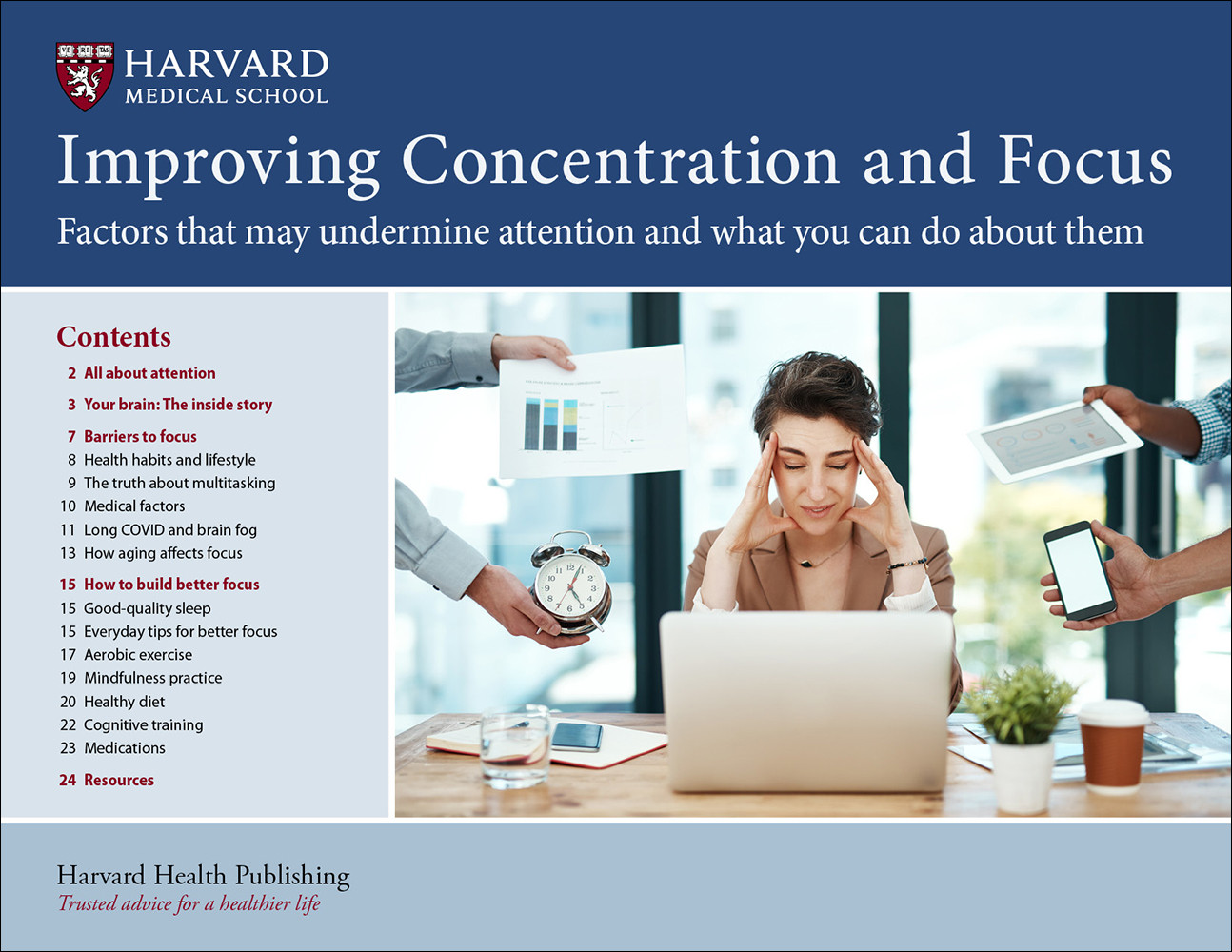You’re talking with someone and your mind wanders off. Your schedule or finances are so disorganized that you forget appointments or miss paying bills. You get impatient quickly and often. These could all be signs of adult ADHD: adult attention deficit hyperactivity disorder. But what is adult ADHD? And what can you do?
To overcome it, you have to understand it! With this guide from Harvard Medical School, you will!
Perhaps no condition is more misunderstood, misdiagnosed, or simply missed. Over 10 million adults have ADHD, but only a fraction are benefiting from today’s progress in detecting and addressing ADHD.
This guide offers explanation, instruction, and direction. Its clarity will bring greater light to the symptoms. Its guidance will bring greater certainty to diagnosis and greater success to treatment.
This report shatters the myths and provides real world help and hope.
“Oh it’s just a kid problem.” “He’s just being lazy.” “He just doesn’t want to listen.” No, no, and no.
ADHD is not just a childhood problem. It is not laziness or willfulness. It is a medical condition marked by differences in brain activity and function compared with others who don’t have the disorder.
The result can be a lifelong struggle to pay attention. Adult ADHD’s effects can impact one’s employment, strain relationships, increase stress, and undermine self-esteem. But, as never before, there are tools and techniques that can dramatically reduce symptoms and help you live the life you want.
You’ll find the advances that deserve — and will hold — your attention!
Confronting Adult ADHD will introduce you to breakthroughs and practical strategies to control core symptoms, extend concentration, ease anxiety, and strengthen relationships. You’ll find two medications effective in seven out of 10 adults. You’ll learn of a nondrug therapy that creates positive ways of thinking. And you’ll be briefed on a novel new technique to reinforce motivation and organization.
Your mind doesn’t have to wander — and you don’t have to wonder!
Prepared by the editors of Harvard Health Publishing in conjunction with Martin H. Teicher, M.D., Ph.D., Associate Professor of Psychiatry, Harvard Medical School; and Director, Developmental Biopsychiatry Research Program, McLean Hospital. (2023)
About Harvard Medical School Guides
Harvard Medical School Guides delivers compact, practical information on important health concerns. These publications are smaller in scope than our Special Health Reports, but they are written in the same clear, easy-to-understand language, and they provide the authoritative health advice you expect from Harvard Health Publishing.













